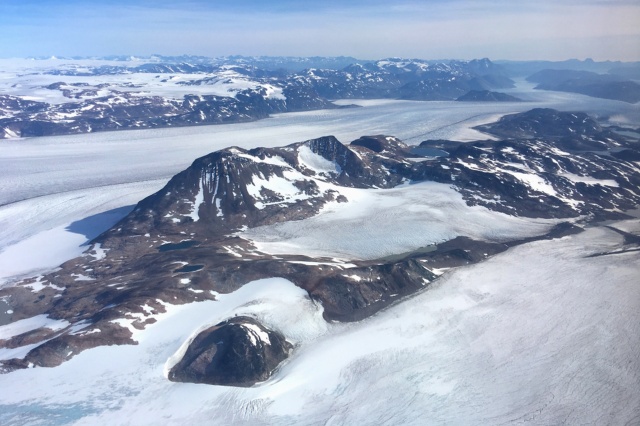Researchers point the way to managing climate change risks
9 May 2023 03:12 PM
The consequences of climate change are many and varied. However, most of them bring considerable risk to communities and ecosystems.

Potential collapse of the ice sheets at the poles are a classic example of a high-impact, low-likelihood event. Picture Shutterstock.
Up until now climate scientists across the globe have largely focussed attention on those events most likely to happen, such as the likely levels of rising temperatures, drought and intense rainfall.
But a new paper led by the Met Office’s Dr Richard Wood stresses the need for more research into those climate events which are considered less likely to happen, but if they did could unleash even greater impacts. Climate scientists refer to these as ‘High-Impact Low-Likelihood’ events; or HILL events for short.
Examples of these events include levels of warming or rainfall changes that are at the top end of what’s considered plausible. Those events which cross ‘tipping points’ – such as the collapse of the West Antarctic Ice Sheet or the breakdown of the Atlantic Meridional Overturning Circulation (AMOC), are also included. AMOC disruption would strongly influence Europe’s climate.
The consequences of such changes for the world, Europe and the UK could be profound.
Preparing for the worst impacts
The paper makes several key points:
- Climate outcomes or events that have a high impact are a key component of climate risk, even if their likelihood is low;
- Traditional climate projections that focus on the most likely outcomes are of limited use to inform management of high-impact low-likelihood risks;
- Climate science needs to develop a new set of scientific tools to inform management of high-impact risks.
Professor Rowan Sutton is the Director of Climate Research at the National Centre for Atmospheric Science (NCAS). He said: “As the Covid pandemic has reminded us, the greatest risks sometimes come from hazards that are not the most likely. We mustn’t be complacent about the low-likelihood aspect of higher-than-expected levels of climate change, ice sheet collapse, or disruption of ocean circulation. Such changes could create impacts well beyond the scope of current plans for adaptation to climate change.”
Dr Wood added: “With HILL events we’re talking about things that probably won’t happen, but we need to be aware and prepare for the possibility, just in case. Climate scientists are just beginning to develop tools to help society respond to HILL risks: plausible storylines of how climate change could play out, and what the impacts would be; and monitoring and early warning to give time to prepare if these events did happen.”
Managing climate risks
In the paper, the authors call for the creation of a HILL-event toolkit for decision makers to develop actions to manage climate risks in their specific sectors. Richard added: “We are potentially vulnerable to HILL events in the UK, but the threats sector-by-sector are different. For example, upland farmers would probably be less worried about the sea level rise impacts stemming from iceshelf melt in the Antarctic. However, all farmers could be exposed to the shutting down of the AMOC ocean circulation which would impose relatively cooler and drier conditions on the UK.”
The paper, published in the journal Earth’s Future, is supported by a panel of eight other UK and international scientists. UK contributors include: Professor Tim Lenton from the University of Exeter; Crystal Moore from the Environment Agency; Simon Sharpe from University College London; and Professor Rowan Sutton from the National Centre for Atmospheric Science.